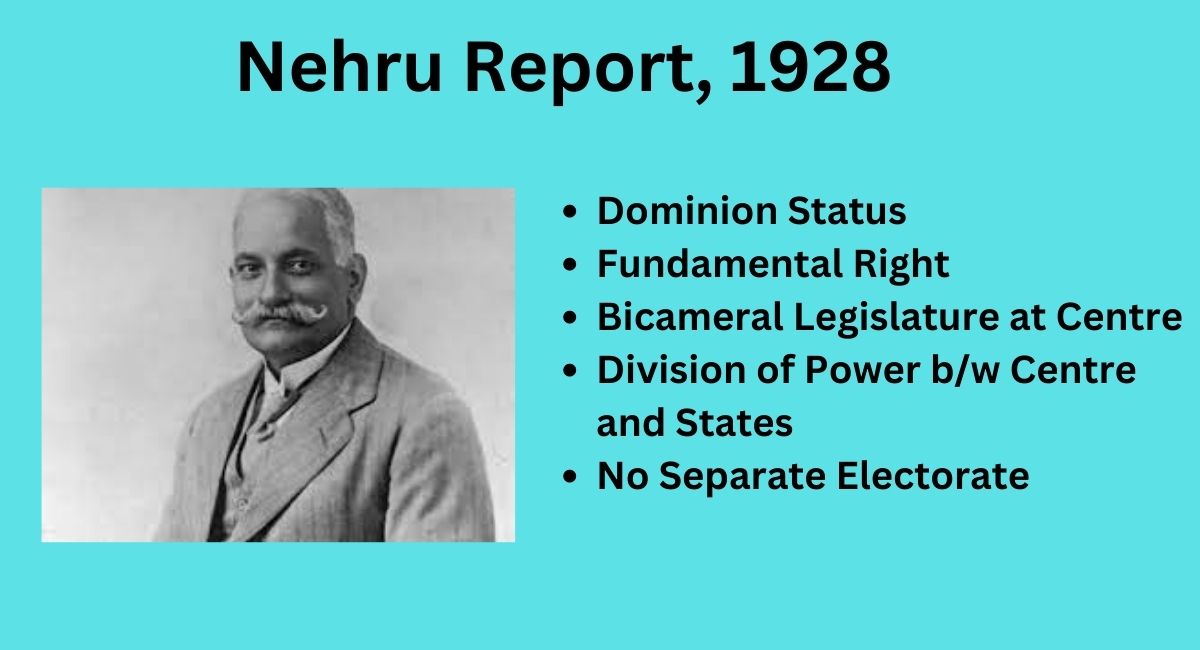The Nehru Report was a comprehensive document that proposed a constitutional framework for India. The report was drafted by a committee headed by Motilal Nehru. The report was submitted to the British Government in 1928 and presented a vision for a self-governing India. The report, also known as the Motilal Nehru Committee Report, was a significant step towards the formulation of India’s constitution.

Table of Contents
Historical Context
The Nehru Report was drafted at a time when India was undergoing significant political and social changes. British government was considering significant constitutional reforms. Against this backdrop, the Nehru Report emerged as a crucial document in the country’s struggle for freedom.
Key Recommendations of Nehru Report
It proposed a comprehensive framework for India’s future constitutional structure. Here are the key recommendations of the Nehru Report:
- Establishment of a federal system of government, with a central government and provincial governments.
- A bicameral legislature at the centre, consisting of an Upper House and a Lower House.
- The right to free speech, the right to form associations, and the right to practice religion freely should be guaranteed.
- The number of members in the central and provincial legislatures should be increased to ensure fair representation.
- A bill of rights should be included in the constitution to protect the rights of Indian citizens.
- The governor-general’s powers should be curtailed, and he should act only on the advice of the ministers.
- The report also rejected the separate electorate for minorities, which was later opposed by the Muslim League.
Reception and Criticism
The Report was received with mixed reactions by different sections of Indian society. The Muslim League, led by Muhammad Ali Jinnah, was critical of the report, arguing that it did not adequately address the concerns of India’s Muslim population. The report’s proposal for a federal system of government was also criticized for not taking into account India’s diverse regional and linguistic identities.
Significance of Nehru Report
Despite its flaws, the the Report was a significant step towards the formulation of India’s constitution. It provided a blueprint for a future constitution, which was eventually adopted in 1950. The report’s proposals related to the rights of Indian citizens also served as a foundation for the inclusion of these rights in the Indian constitution. Additionally, the Nehru Report contributed to the growth of Indian nationalism and the country’s struggle for independence from British rule.
Conclusion
In conclusion, the Report was a crucial document in India’s constitutional struggle. While it was not without its flaws, the report’s proposals for a federal system of government and the rights of Indian citizens served as a foundation for the eventual adoption of India’s constitution. The report’s significance lies in its contribution to the growth of Indian nationalism and the country’s eventual independence from British rule.
Important Links